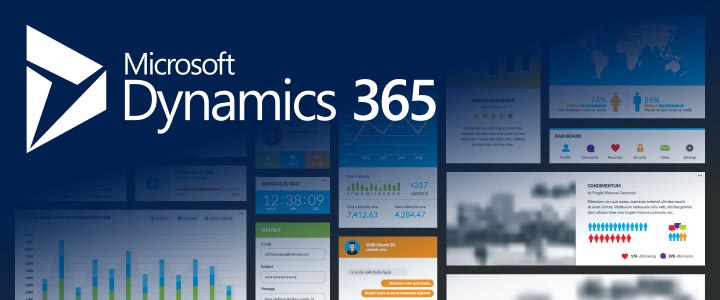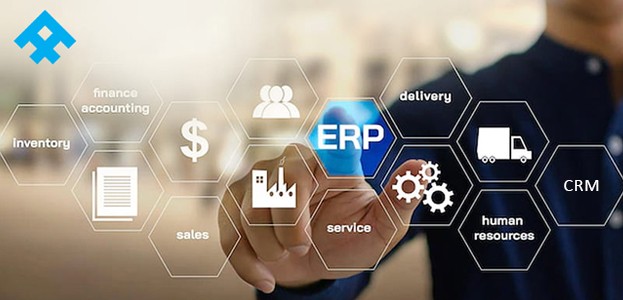- July 28, 2025
- Posted by: Waqar Wajid
- Category: Microsoft Dynamics ERP System

Enterprise Resource Planning (ERP) systems have become essential tools for organizations aiming to streamline operations, improve efficiency, and gain real-time visibility into their business processes. While ERP is often associated with large corporations, its applications span a wide range of industries—from manufacturing and healthcare to retail and education.
In this blog, we’ll explore ERP system examples in different sectors, highlighting how businesses across industries use ERP software to solve unique challenges and optimize their workflows.
What Is an ERP System?
An ERP system is a type of software that integrates core business functions such as finance, human resources, supply chain, inventory, manufacturing, and customer relationship management into a unified platform. This integration allows businesses to operate more efficiently, make data-driven decisions, and reduce manual errors.
Let’s look at some real-world ERP software examples across major industries.
1. Manufacturing Industry
ERP System Example: SAP ERP, Microsoft Dynamics 365, Epicor
Manufacturing companies rely on ERP systems to manage production planning, raw material sourcing, inventory tracking, and quality control. For example:
- A car manufacturing company may use SAP ERP to monitor parts from multiple suppliers, manage the assembly line schedule, and track finished goods.
- Epicor ERP, designed specifically for manufacturers, helps track shop floor operations and ensure compliance with industry standards.
Why ERP?
Manufacturers need real-time visibility into the supply chain to avoid delays, overproduction, or inventory shortages. An ERP ensures synchronized operations between procurement, production, and sales.
2. Retail and E-commerce
ERP Software Example: Oracle NetSuite, Odoo, Microsoft Dynamics NAV
Retailers use ERP systems to handle inventory management, sales forecasting, supplier coordination, and customer service.
- NetSuite enables fashion retailers to manage inventory across stores and online channels seamlessly.
- Odoo ERP helps small to mid-sized e-commerce stores manage product listings, track orders, and integrate with payment gateways.
Why ERP?
With multiple SKUs and sales channels, ERP ensures consistent data and smooth customer experiences by unifying inventory, sales, and fulfillment processes.
3. Healthcare Industry
Among the leading ERP systems adopted in the healthcare sector are Infor Healthcare, Workday, and SAP for Healthcare.
Healthcare organizations use ERP to manage patient records, staff scheduling, medical inventory, procurement, and billing.
- A hospital might implement Infor Healthcare ERP to handle supply chain logistics for medical supplies and equipment.
- Workday ERP is often used by healthcare providers for managing HR and payroll functions, particularly in multi-location settings.
Why ERP?
The healthcare industry operates under strict regulations and deals with high volumes of sensitive data. ERP systems help streamline operations while maintaining compliance and data security.
4. Education Sector
ERP System Examples: Ellucian Banner, Oracle PeopleSoft
Educational institutions use ERP software to manage student admissions, faculty information, exam results, course schedules, and fee payments.
- Ellucian Banner is a widely used ERP solution in universities and colleges for managing student lifecycle data.
- Oracle PeopleSoft helps with administrative operations, HR, and budgeting in large educational organizations.
Why ERP?
Schools and universities benefit from centralized data systems that enhance collaboration between departments and simplify student engagement.
5. Construction and Engineering
ERP Software Example: Viewpoint, Sage 300 Construction, Autodesk Construction Cloud
Construction companies use ERP systems to manage project timelines, budgeting, resource allocation, and on-site activities.
- A contractor firm might use Sage 300 Construction ERP to handle multiple projects, track costs, and manage subcontractor payments.
- Viewpoint ERP integrates project management with back-office accounting for full project visibility.
Why ERP?
ERP software ensures that project planning, budgeting, and execution are aligned—essential for managing tight deadlines and resource constraints.
6. Food and Beverage Industry
ERP System Examples: JustFood, Aptean Food & Beverage ERP
Food manufacturers and distributors require ERP systems that help ensure compliance with food safety regulations and track product freshness.
- JustFood ERP is designed for food processors and includes features like recipe management, batch tracking, and regulatory compliance.
- Aptean ERP provides robust tools for managing perishable inventory and tracking production by lot number.
Why ERP?
Traceability, quality control, and shelf-life management are critical in this industry, making ERP systems vital for compliance and efficiency.
Conclusion
ERP systems have become indispensable across a wide range of industries. Whether it’s streamlining supply chains in manufacturing, managing patient data in healthcare, or improving customer experience in retail, ERP software enables organizations to operate more efficiently and make smarter decisions.
These ERP system examples show that there’s no one-size-fits-all solution—each industry adapts ERP tools to meet its specific challenges. As technology advances, we can expect ERP systems to become even more specialized, cloud-based, and AI-integrated.
If you’re considering ERP for your business, look for ERP software examples relevant to your industry. A well-chosen ERP system can not only streamline operations but also serve as a competitive advantage in today’s fast-paced market.
Looking to implement the right ERP system for your industry?
Whether you’re in retail, healthcare, construction, or another sector, Al-Futtaim Technologies provides ERP solutions tailored to your specific business needs.
👉 Get in touch with our experts today to explore how we can streamline your operations and boost productivity.
Contact us now to schedule your free ERP consultation!



